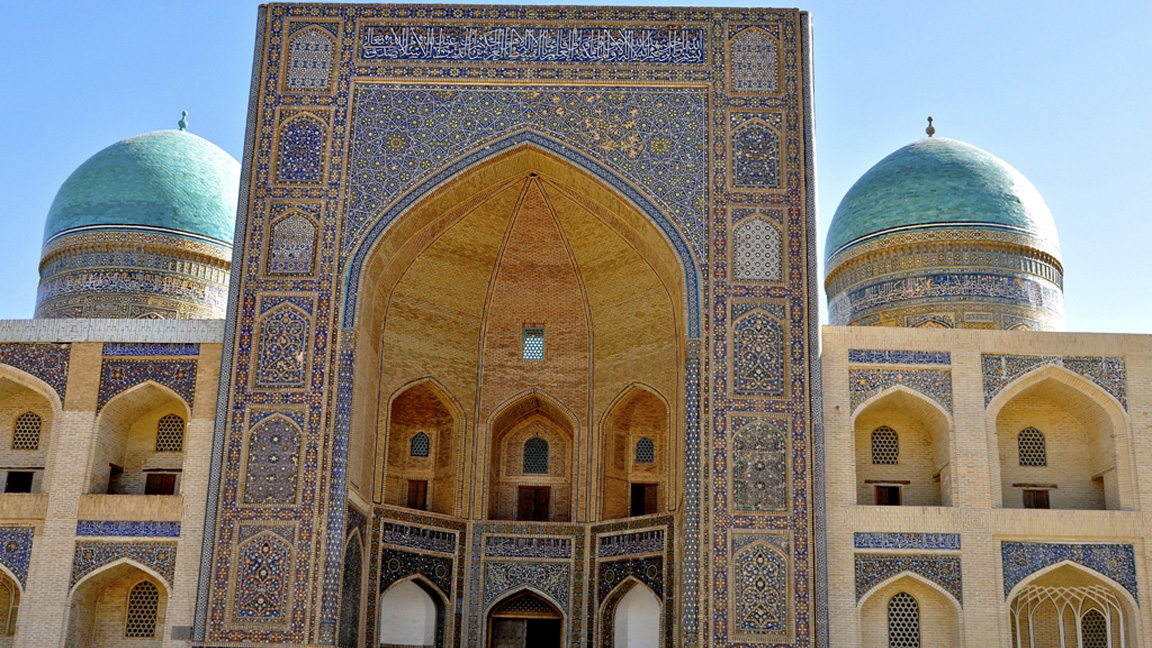


Bukhara Dome of Faith
Bukhara, located on the Great Silk Road, is more than 2,000 years old. It is the most comprehensive example of a medieval city in Central Asia where entire neighborhoods with their ancient face have been preserved to this day, monuments of particular interest are the famous tomb of Ismail Samani, a masterpiece of Muslim architecture from the 10th century as well a large number of 17th century Koran schools. The historical part of the city, which is in fact an open-air museum, combines the city's long history into a single ensemble.
For centuries, Bukhara was a fertile oasis in the valley of the Zerafshan River on the Great Silk Road, the leading center of science and culture. Archaeological excavations show that the settlements arose as early as the time of the Kushan Empire in the 2nd millennium BC. In the 4th century it was incorporated into the Ephtalite state. Before the Arab conquest, Bukhara was one of the largest cities in Central Asia for its prosperity, its location on a rich oasis and at the crossroads of ancient trade routes. It became an important cultural center of the Baghdad Caliphate in 709. In 892, Bukhara became the capital of the independent Samanid Kingdom. But the big economic growth came with the looting the city ended in 1220 by the Mongol hordes of Genghis Khan. It slowly recovered when it became part of the Timurid Empire in the 14th century. In the Middle Ages, Bukhara was a holy city for all Muslims in Central Asia; not only from a religious point of view, but also from an aesthetic point of view. Bukhara was considered a place of glory, a home for many famous figures of the time. The author of the second most important Islamic book after the Koran, the book of authentic khadiths, Al-Jami as-Sahih, was Imam Al-Bukhari. Abu Ali Ibn Sina, known in the west as Avicenna, was born in a small village near Bukhara and started his career in this city. The respected Sheikh Bahauddin Nakshbandi, the founder of the Sufi order, was also born in Bukhara. Bukhara gave the world such important personalities as the historian Narschachi and the poets Rudaki and Dakiki. Even the rogue from local folklore, Khodja Nasriddin, came from Bukhara. The centuries-old activity of Muslim scientists, thinkers, architects and poets gave the city such titles as "Domes of Faith", "Noble Bukhara", "Blessed City." It seems that Bukhara really does all these names earned. The historic center of Bukhara, which contains numerous mosques and Koran schools, has been listed as a World Heritage Site by UNESCO.